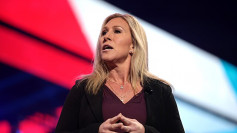The Trump administration on Monday froze $2.2 billion in grants and $60 million in contracts to Harvard University, escalating a political standoff over campus policies and free speech. The move came after Harvard declined to implement a series of sweeping policy changes demanded by a federal task force, which included eliminating diversity, equity, and inclusion programs, banning face masks during protests, and instituting merit-based admissions and hiring criteria.
In a letter to the Harvard community, President Alan Garber said the administration's demands "exceed the statutory limits of the government's authority under Title VI" and violate the First Amendment. "No government - regardless of which party is in power - should dictate what private universities can teach, whom they can admit and hire, and which areas of study and inquiry they can pursue," Garber wrote.
The policy demands, which also included increased cooperation with the Department of Homeland Security and a ban on funding or recognition for student groups that "endorse or promote criminal activity, illegal violence, or illegal harassment," were received by Harvard last week. The university formally notified the administration through legal counsel that it would not accept the proposed agreement.
"What the President of the United States is demanding of universities is nothing short of authoritarian," Harvard Law School professor Nikolas Bowie said in an interview with CNN. "He is violating the First Amendment rights of universities and faculty by demanding that if universities want to keep this money, they have to suppress our speech and change what we teach and how we study."
White House officials defended the cuts, describing the demands as part of a broader campaign to combat what they claim is rising antisemitism and "dangerous racial discrimination" on college campuses. "President Trump is working to Make Higher Education Great Again by ending unchecked anti-Semitism and ensuring federal taxpayer dollars do not fund Harvard's support of dangerous racial discrimination or racially motivated violence," a spokesperson said.
The freeze follows similar actions against other Ivy League institutions, including Columbia, Brown, Princeton, and the University of Pennsylvania. In Columbia's case, more than $400 million in federal funding was cut following a comparable demand letter.
Harvard, with a $53.2 billion endowment as of 2024, also faces legal action filed by the American Association of University Professors. The lawsuit, filed Friday, claims the administration failed to follow procedural requirements under Title VI before cutting federal funding and seeks a temporary restraining order to prevent the freeze.
"These sweeping yet indeterminate demands are not remedies targeting the causes of any determination of noncompliance with federal law," the lawsuit states. "Instead, they overtly seek to impose on Harvard University political views and policy preferences advanced by the Trump administration."
A coalition of Harvard alumni also condemned the administration's actions, writing in an open letter that university leadership should "legally contest and refuse to comply with unlawful demands that threaten academic freedom and university self-governance." Anurima Bhargava, one of the signatories, said, "Harvard reminded the world that learning, innovation and transformative growth will not yield to bullying and authoritarian whims."
The departments of Education, Health and Human Services, and the General Services Administration are reviewing an additional $8.7 billion in grants and over $255 million in contracts between Harvard, its affiliates, and the federal government, according to a release.






